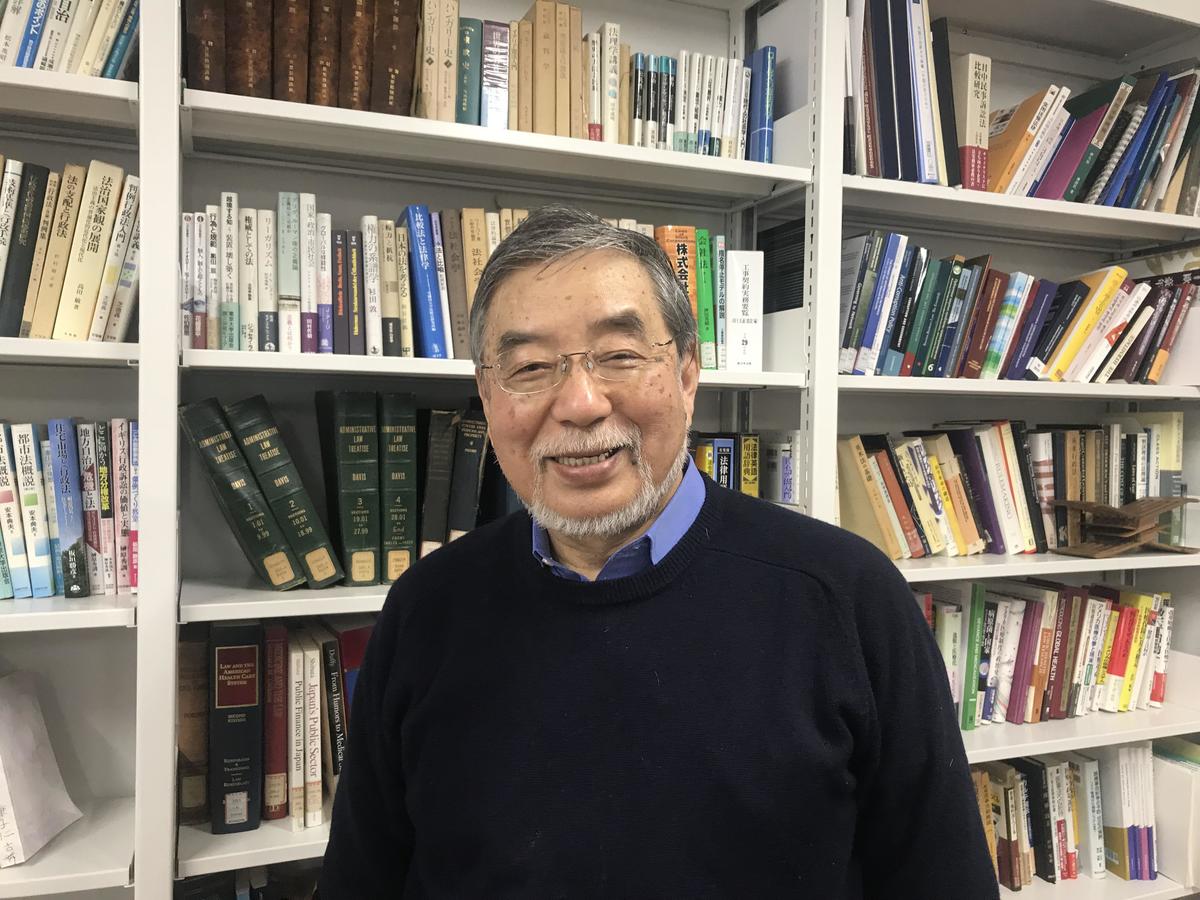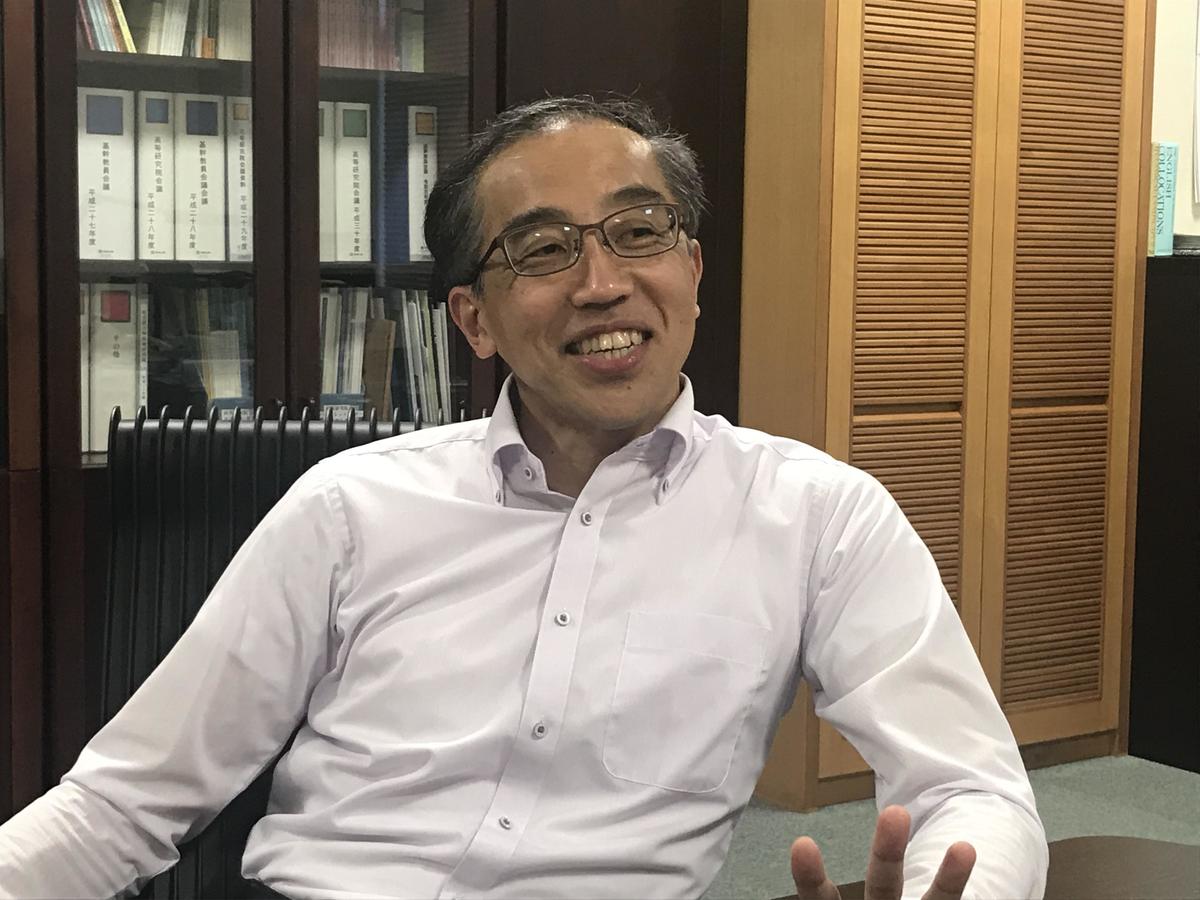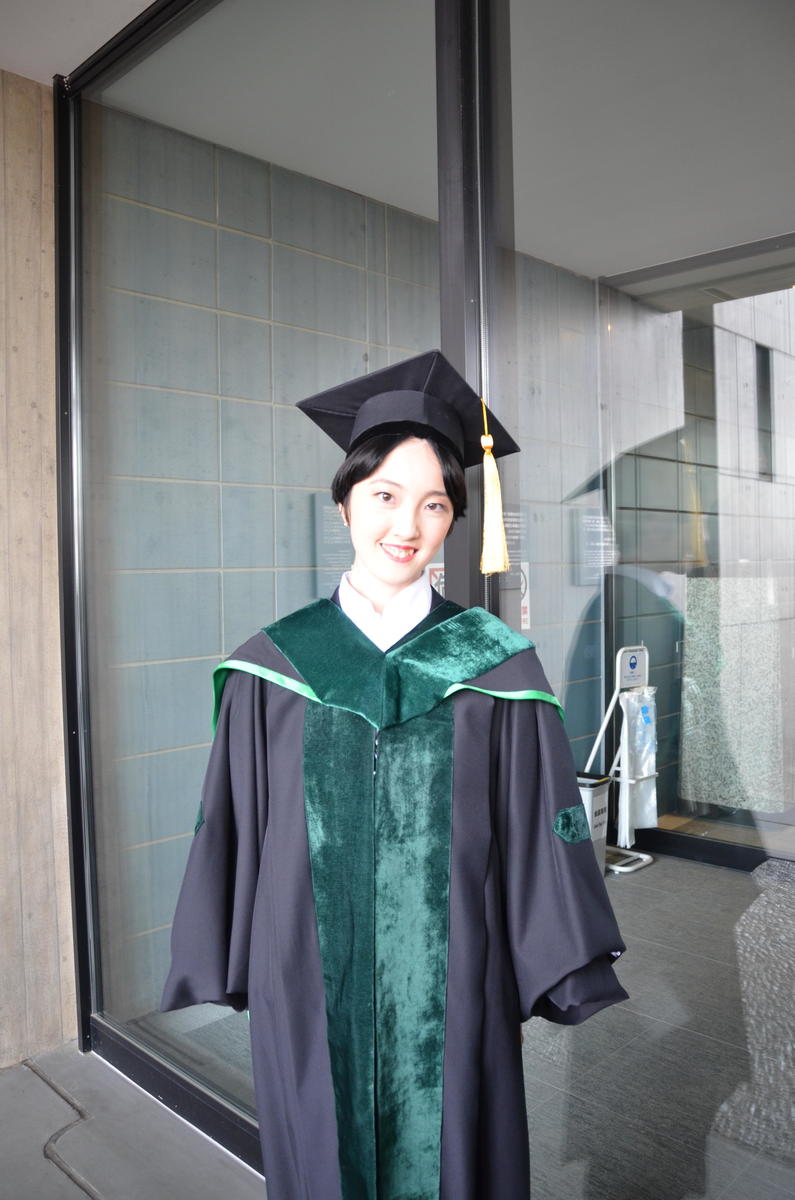July 31, 2019
What Can History Teach Us?
The asteroid explorer Hayabusa2 of the Japan Aerospace Exploration Agency (JAXA) successfully touched down for its second time on the asteroid Ryugu. It was confirmed that rock samples had been collected during the first landing, so any major failure that prevented the explorer from returning to Earth would also mean losing those samples. While some had worried about the risks, this second touchdown turned out to be a dramatic success. The press conference was filled with exuberant statements: "This was like scoring 1,000 on a scale of 100," and "We now have a piece of the history of the solar system." Many people were undeniably excited about having made such great use of Hayabusa2's potential.
As I observed the excitement about Hayabusa2, I recalled the words of Nagoya University's Professor Emeritus Shoichi Sato, recognized as an expert in medieval European history: "The reason so many people are excited about Hayabusa seems that it is an unknown world. I can understand the feeling. But speaking of unknown worlds, there are others too."
Obviously, unknown worlds exist not only in the world of science. Research by its very nature peers into unknown worlds, so it unquestionably involves intellectual excitement. But whether that intellectual excitement can be shared broadly probably depends on the field, and might depend on the efforts of the researchers themselves. Sato says that it is the researcher's job to spread those specialized research findings by getting published, and he says that having more time now by being away from the front lines of research, he is reaching the world by publishing a paperback book series for the general reader.
 Professor Emeritus Shoichi Sato is active internationally, including his role representing the Japan Academy as a director of the Union Académique Internationale (UAI). He says he was very impressed by his first visit to the archaeological site of Carthag
Professor Emeritus Shoichi Sato is active internationally, including his role representing the Japan Academy as a director of the Union Académique Internationale (UAI). He says he was very impressed by his first visit to the archaeological site of Carthag
Sato is a member of the Japan Academy and an internationally known historian, having been elected a member of the Institut de France in June this year. He played baseball day and night in high school and then studied law at Chuo University, saying he felt that was a practical choice for his career. But having a strong interest in academics, particularly in history, he continued his studies in graduate school at Waseda University, after which he immediately went to study in France as a self-supporting international student. He later became an associate professor at Aichi University, and while in Paris as a visiting researcher from 1984 to 1987, became interested in a surviving collection of seventh-century bookkeeping records from a French monastery. They contained detailed records of transactions such as grain payments the monastery collected from farmers. His heightened interest came from the insight that the records represented a valuable part of history, revealing the relationship between a landowner and farmers in the period of transition from classical antiquity to the middle ages. In 1987 he transferred to Nagoya University and then over the course of ten years deciphered the voluminous bookkeeping records, compiling the findings into his dissertation. It was published in 1997 by the University of Nagoya Press under the title "Monasteries and Farmers: The Loire Region in the Early Middle Ages as Revealed by Bookkeeping Records," and he was awarded the Japan Academy Prize in 2002 by for this achievements.
Going from law into French history, he had followed an unorthodox path in Japan to study European history, so the first presentation of his work to Japanese academic societies was apparently referred to as a "stunning debut." Meanwhile, in the context of the clear separation in France between scholars who read old documents and the historians who interpreted them, he apparently drew attention as a historian who also happened to interpret old documents.
Sato says that one example of a topic that deserves more attention is the international debate about feudalism. In 1974 and 1994, female medieval historians from the United States and England, respectively, published ground-breaking books that overturned the conventional debate about European medieval feudalism and set off a major international discussion. Similarly, feudalism is also being debated in Japan, and he says that changing the generally-accepted concepts about feudalism could have a major impact on the view of history, so this really gets interesting.
It may seem like this debate is only among historians, but there is an example of popular newspapers in Germany that covered the debate as scholarly topics. Perhaps this is due to a heightened public interest in learning there, as they develop experts who are not academics and support the study of history and other humanities, for instance.
It might be good to communicate more about major trends in the scholarly world. This might be difficult in some fields, but history is relatively easy to understand. Recently, new theories are constantly being proposed and they attract a lot of interest in Japanese history. That is why Sato says he would like to spread the word about what is happening in academics somehow.
At an attempt to do so, he spelled out his ideas in a Chuko Shinsho publisher's series of paperbacks, including "Europe of Abstinence" (2014), "Europe of Atonement" (2016), "Europe of the Sword and Honest Poverty" (2017), and "Missionary Europe" (2018). His style is a departure from academic book style as he wanders back through time to medieval religious orders for the European cultural context that continues to this day. As a result, his newest work looks at the Jesuits, which also had a significant influence on Japan. In his fifth and final installment in the series, which he plans to publish this autumn, he will look at religious orders that transformed into academic organizations in the seventeenth century, and at the birth of modern historical sciences.
One question that occurred to me was why a Japanese researcher would tackle not his own country's history but European medieval history. Wouldn't there be language barriers and disadvantages compared to a person born and raised in that land?
Sato's answer was clear: "Scholarship is a universal thing, so anyone with an interest in something can investigate it regardless of nationality or language. And the outcomes can contribute to human civilization."
The key is that whatever the subject, the perspective and creativity of the individual researcher comes into play. In fact, someone coming from a different culture might notice different things. No one had worked on the monastery documents that Sato shone a light on because of the assumption that such fragmented materials would not be of much use. His work has been lauded for its originality, and there are voices calling for a full translation into French or English, as only some parts of it have been translated into those languages.
Following in Sato's footsteps and not letting those barriers stop them, more and more researchers are turning out excellent research, he says. At an event this spring to commemorate receiving the Order of the Sacred Treasure awarded by the Emperor of Japan, Sato gave a lecture entitled "The New Situation for the Development of European Medieval Research in Japan." In it he described how, especially since the 1990s, there have been a growing number of cases of Japanese research done outside Japan that has received recognition outside Japan. In other words, he says that one researcher after another is being recognized as a result of a process of "having profound and extensive knowledge of medieval history, combined with comprehensive knowledge of leading research, as well as excellent communication skills with advisors and research colleagues, and getting their results published by established academic publishers overseas." Another background factor is that there are more opportunities for young people to do research overseas with grants from the Japan Society for the Promotion of Science.
One example he mentioned was Professor Takeshi Matsumura of the University of Tokyo, who had compiled a dictionary of medieval French. For his achievements he was awarded the prestigious Grand Prix de la Francophonie from the Académie Française in 2016, and the Imperial Prize of the Japan Academy in 2018. Sato said that because the best dictionaries end up being known by the name of their editor, this dictionary would probably one day be known by the name Matsumura.
I was surprised that a Japanese person would be associated with such a dictionary, but apparently an authoritative scholar of French medieval literature had nominated Matsumura, one of his students, to do the work. French dictionaries for this historical period consisted mainly of old tomes separated into several volumes, containing "ghost words" and errors, and French experts commissioned to create a new dictionary were making no progress. In a sense, the choice had fallen upon Matsumura as the most reliable specialist for the task. It may have seemed like a simple request to go through 400 or 500 pages, but in the end the task took five and a half years and resulted in a dictionary containing about 56,000 words in 3,500 pages. The work was apparently done to perfection, meeting all expectations and with extremely few transcription errors.
Sato says that when he is working personally on a historical era it takes him a day to mentally shift gears. That is how much concentration was needed for the task, so he credits Matsumura's "extraordinary concentration power" for his achievement.
Thus, while the contributions of Japanese researchers are growing, young researchers are also coming to Japan from overseas. One example he mentions is the active exchanges in comparative research regarding family crests in medieval and early modern Japan and coats of arms in Europe. I have great expectations for these kinds of exchanges to lead to new developments in the future.
 Yoshiyuki Suto, Director of the Institute for Advanced Research. While working to foster young and motivated inter-disciplinary researchers, he is also researching cultural interactions between Egypt and Greece.
Yoshiyuki Suto, Director of the Institute for Advanced Research. While working to foster young and motivated inter-disciplinary researchers, he is also researching cultural interactions between Egypt and Greece.
So, what is the significance of researching and learning about history at university? "Sometimes people question the point of learning about the past," says Professor Yoshiyuki Suto at the Graduate School of Humanities. He is an archaeologist whose original specialty was Greece. Since he was hired by Sato as an associate professor in Western history, archaeology has contributed to advances in research in historical studies. He is currently also serving as the Director of the Institute for Advanced Research, where Sato once served as the second Director after that academy was established at Meidai.
Suto says, "Humans are living beings that pass on their culture by absorbing what predecessors have created and adding on something new. Because of that, it is important to see things in the context of history: How people lived in the past and under what conditions, and why things are happening this way today."
Humanity has a history of repeating major failures. He says that Meidai, being deeply involved in leading-edge science and technology, is the very place that must have scholarship in history and the other humanities. This is because studies of humanities are essential to acquire the basic foundations to empower thought about the present day and about what it means to be human.
Sato adds, "The more things change, the more ordinary people are only aware of the era they are living in. But by learning about history we are forced to think about the various fates of past eras. The more dizzying the changes of the times, the more important it becomes to study history in liberal arts education."
 Valedictorian Kotone Nukina graduated from her studies in the School of Letters this spring and is now in the working world.
Valedictorian Kotone Nukina graduated from her studies in the School of Letters this spring and is now in the working world.
This spring, I heard these words.
"Each era in world history, while unique in its own way, is also part of the flow from a previous era. If we properly learn from the achievements of the past we can deal with the unique challenges of today, and that is the significance of learning about history."
"Our challenge today is about how to manifest our individuality in what field of endeavor. And when thinking about this, I realize that it is valuable to learn how people who lived in the past viewed the times they lived in and how they dealt with their own unique challenges, and to understand the flow that leads up to today."
Those words were part of a valedictory address by Kotone Nukina at her graduation from studies in western history at the School of Letters.
This is the core significance of learning about history. I hope that students will study history with passion, exactly as expressed in her words, in the context of a rich tradition of history research contributing to humanity here.

 Subscribe to RSS
Subscribe to RSS